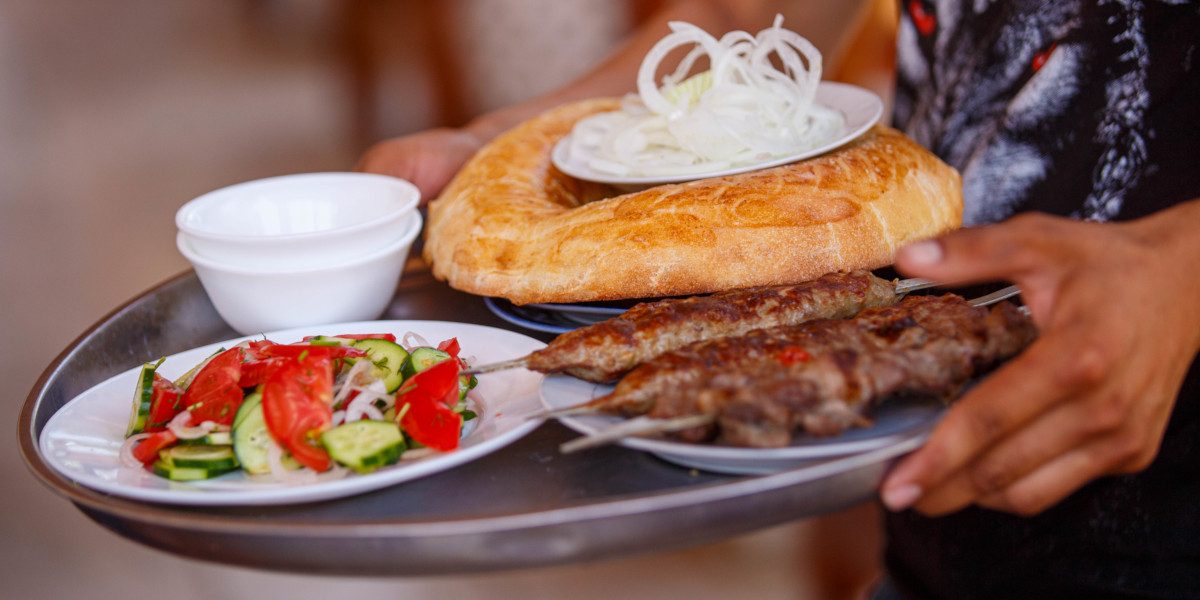The city is especially famous for the mausoleum of Sufi Abdukholik Gijduvani, who founded the Sufi Brotherhood of Khojagon in the 12th century. Sufism was widespread in Central Asia. Sufi orders played an essential role in the development of society. Gijduvani is one of the seven saints of Bukhara, called “Pir”, whose mausoleums can be visited; a pilgrimage very popular with locals. One of the three madrasahs of Ulugbek was built near his tomb in the 15th century.
GIJDUVAN – THE CENTRE OF CERAMICS AND EMBROIDERY
Gijduvan is considered the centre of embroidery (Suzani) and ceramics. Embroideries are basically found throughout Uzbekistan, but the Gijduvan embroidery school has its distinctive ornaments and natural colours used in the region.
Thanks to the efforts of Ibodullo Narzullaev, Gijduvan’s ceramic art did not disappear during Soviet industrialism. The traditional colours of this school are brown, yellow and green. The patterns that decorate the products have a centuries-old tradition and are passed down from generation to generation. The task of ceramic artisans is not only to produce wares but to pass on the experience gained over the years to the next generation.
Today, the sons of Ibodullo Narzullaev, Abdullo and Alisher run two large ceramic workshops in the city. Both workshops have their own free ceramics museum, where you can see products with different decorations such as ornaments and flowers from other regions of Uzbekistan. Furthermore, the process of ceramics production is explained and illustrated in detail. Of course, there are also galleries where tourists can buy souvenirs.
The brothers possess and apply an old technique in which the glaze of the products is made purely from plants. This process ensures that ceramic plates can be used for food consumption without hesitation.
In addition to the Narzullaev brothers, other potters in the city specialize in household items such as tandoor and flowerpots and sell their products mainly to the local population.
In Uzbekistan, you will find a large number of blue ceramics from the Fergana Valley in the bazaars and souvenir shops, while Gijduvan products are not so widespread. Today, there are only two potteries in Gijduvan, while there are several hundred in the Fergana Valley.
Gijduvan shashlik – Traditional dish
Gijduvan is known for its shashlik skewers. Small pieces of meat are marinated in a unique spice mixture. Afterwards, pieces of meat are skewered together with pieces of fat, giving the shashlik a better taste. Locals who happen to be in Gijduvan will definitely order a portion here.

Air connections: Gijduvan does not have an airport. The nearest airports are in Bukhara (50 km away) or Navoi (70 km away).
Railway connection: there is no railway station in Gijduvan. The nearest railway stations are in Kagan (next to Bukhara, 60 km away) or Navoi (70 km away).